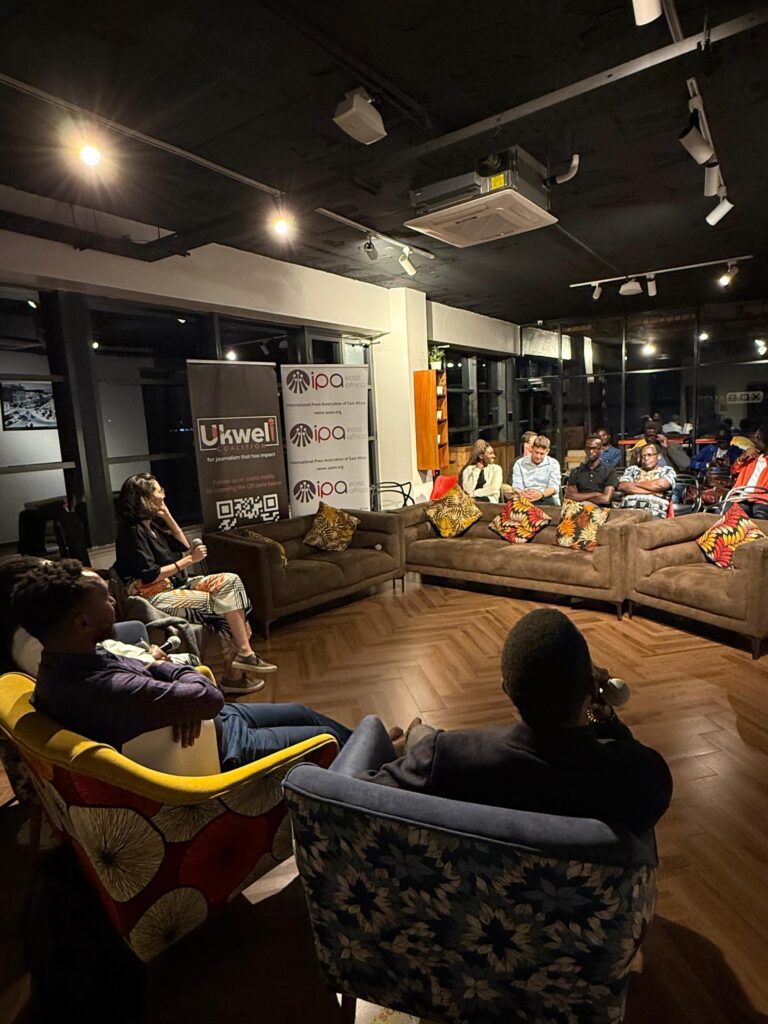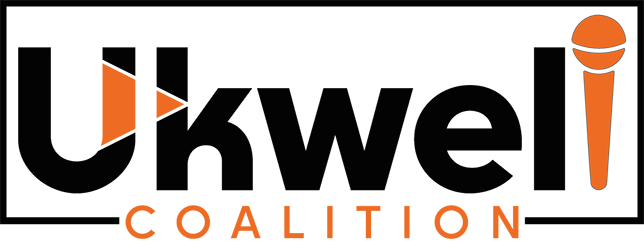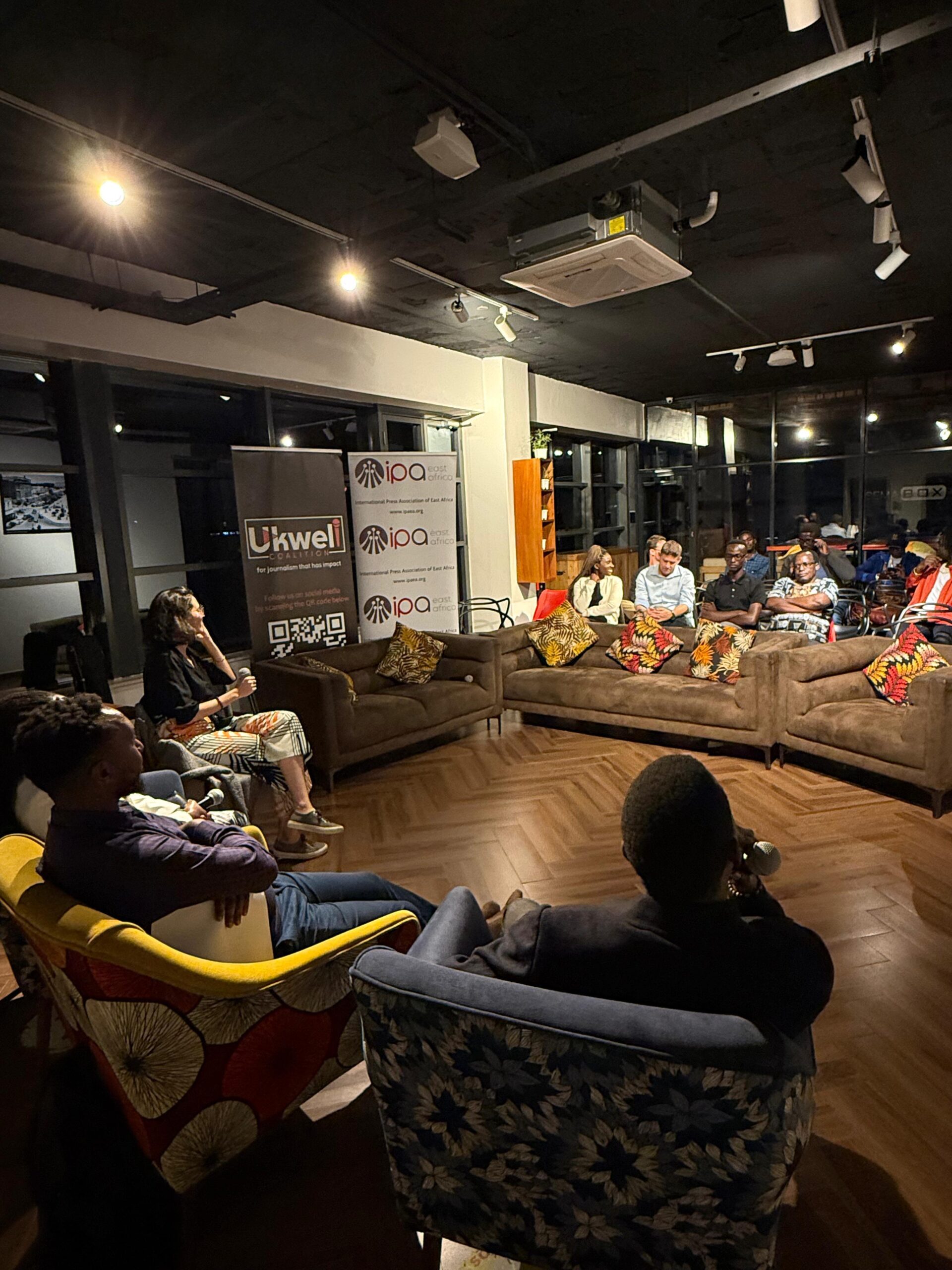As fighting continues in the east of the Democratic Republic of Congo (DRC), journalists also find themselves caught between threats from armed groups and pressure from the state. Faced with this climate of insecurity, dozens of reporters have fled, often without resources. Those who have stayed behind must choose between self-censorship and silence.
By Ukweli Coalition Media Hub

In a well-lit room with colourful armchairs at the Baraza Media Lab in Nairobi, a heavy silence settles in. The tension is only broken when the chords of a guitar are heard, played by Congolese artist Freed Mashagalusa. An artistic introduction to a serious subject: the forced exile of journalists from eastern DRC.
On May 5, two days after the celebration of World Press Freedom Day, journalists, media partners and human rights defenders gathered in Nairobi at an evening event — organised by Ukweli Coalition Media Hub in partnership with the International Press Association of East Africa — to raise awareness about the press freedom situation in eastern DRC, which has deteriorated sharply since the beginning of the year, as fighting between the Congolese army and M23 rebels intensified and the rebels occupied areas.
Gorette (not her real name for security reasons), a journalist specialising in human rights and violence against women, is one of those forced to flee. Based in Bukavu, she recounts having received explicit threats after the publication of several reports giving a voice to survivors of violence. “I was clearly told that I was on a list. I left town the day before the rebels entered”, she confides. Now a refugee in Nairobi with some of her children, she is trying to rebuild her life, without a stable job or clear prospects.
According to Reporters sans frontières (RSF), more than 90 journalists were forced to flee the east of the country between January 2024 and February 2025. Some fled to Kinshasa, while others, like Jean (also a pseudonym), a young reporter from Goma, found refuge abroad. “I left with a backpack, without telling anyone, to not arouse suspicion”, he recounts. His “wrongdoing” was that he had collaborated with a media outlet that had worked on a story denouncing summary executions by the rebels in Goma.
The danger does not only come from armed groups. On January 9, 2025, the Congolese Minister of Justice, Constant Mutamba, announced that relaying messages from the M23 or the Rwandan army could result in the death penalty. Two days later, his colleague in charge of communications, Patrick Muyaya, clarified that this threat was aimed not only at journalists, but also at anyone likely to relay “messages from the enemy”.
In this climate of fear, journalists still active in the field adopt a strategy of self-censorship. “We avoid sensitive subjects. Our work has become more like communications than journalism,” says a Goma-based reporter, contacted on condition of anonymity. He adds that the pressure is so big that he is considering changing profession.
According to RSF figures, 52 press freedom violations were recorded in the DRC between January 2024 and January 2025. A third of these violations concerned the province of North Kivu alone. At the same time, at least 26 community radio stations have been closed or looted since January 2024, a dozen of them targeted directly by the M23.
For those who have fled, exile is far from being a lasting solution. In Nairobi, Gorette survives thanks to temporary assistance from an organisation that defends journalists. But this assistance, limited to a few months, does not cover the needs of her children back home, nor the education of her youngest son. “I can’t even offer him toys,” she says, her voice tight.
Jean, too, lives in anguish and frustration. “I’m ashamed. I had a life, a job, a family. Today I’m dependent on humanitarian aid.” The journalist explains that the support he receives only covers his basic needs, and that he has no way of sending money to his relatives back in Goma, where the humanitarian situation continues to deteriorate.
The language barrier also complicates their integration. As French speakers in a predominantly English-speaking country, several exiled journalists say they feel isolated, with no way of continuing their work.
The DRC has dropped 10 places in the World Press Freedom Index, from 123rd in 2024 to 133rd in 2025. Both Gorette and Jean are hoping for an improvement in the situation of journalists in their home countries. The authorities in Kinshasa seem to spread a more optimistic message. The president of the higher council for audiovisual media and communication (CSAC) recently stated that “no journalist has been killed or arrested” since Félix Tshisekedi came to power.
For Ukweli Coalition Media Hub and the International Press Association Press of East Africa, the event was a moment to emphasise the call for solidarity with Congolese journalists. “We stand by these often forgotten men and women of the media, who continue to defend free information at the risk of their lives”, says Armel-Gilbert Bukeyeneza, founder and coordinator of Ukweli.

